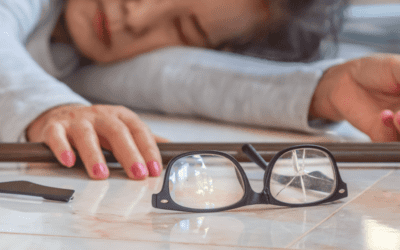Understanding the Role of Witnesses in Personal Injury Cases in Riverview, Florida
Personal injury cases can be grueling experiences for those who the negligence and wrongdoing of others has victimized. Not only do these cases often involve intense physical pain and emotional trauma, but they also require an intricate legal process that can make things even more challenging.
One crucial aspect of any personal injury case is the role of witnesses. Witnesses have observed a specific event or circumstance related to the case and can provide valuable testimony that can help determine the case’s outcome.
Understanding the role of witnesses is essential in any personal injury case, and this guide aims to provide a comprehensive understanding of witnesses, their importance in personal injury cases, and what you should know in case you need to give testimony or call on witnesses as part of your case.
Types of Witnesses in Personal Injury Cases
Different types of witnesses can be involved in personal injury cases. These include:
Eyewitnesses are individuals who have directly observed an incident or were present during the event.
Expert witnesses work in specialized fields relevant to the case and can provide expert opinions on the event or circumstances related to the case.
Character witnesses can testify about the victim’s character, behavior, or other aspects related to their mental state.
Why Witnesses are Important in Personal Injury Cases
Witnesses in personal injury cases are essential because they can provide critical testimony that can help prove your claim. They can provide firsthand accounts of the event, which can be used to establish liability or negligence. For instance, an eyewitness’s account of a driver running a red light before a collision can be crucial in proving fault.
Furthermore, testimony from witnesses in personal injury cases can also help establish the extent of your injuries and their impact on your life. A treating physician can provide medical evidence of your injuries, while friends or family members can testify about how the injury has affected your daily activities, work, or relationships. This testimony can be particularly important when calculating non-economic damages like pain and suffering.
In some cases, testimony from witnesses in personal injury cases can help refute the defendant’s claims, proving that they are not telling the truth. For example, if a defendant claims they were driving at the speed limit, an eyewitness who saw them speeding can contradict this claim. Similarly, expert witnesses can challenge inaccurate or misleading assertions made by the defense.
Witnesses in personal injury cases can also provide context and fill in gaps in other forms of evidence. While physical evidence like photographs or documents is important, witnesses can provide the narrative that ties this evidence together and explains its significance to the jury or judge.
Lastly, credible testimony from witnesses in personal injury cases can significantly strengthen your case during settlement negotiations. Insurance companies and opposing counsel are more likely to offer a fair settlement when faced with strong witness statements that support your claim.
Tips for Calling on Witnesses in Personal Injury Cases
If you need to call on witnesses in your personal injury case, here are some tips to keep in mind:
Be prepared before you contact any witnesses. Make sure you have gathered all the evidence related to your case so you are clear about what information you need to get from the witness.
Contact the witness as soon as possible. Memories can fade over time, and you want to ensure the witness can recall the incident accurately.
If possible, get a written statement from the witness. This statement can serve as evidence in your case and can be used to support your claim.
Understanding the role of witnesses is essential in personal injury cases. Witnesses can help prove your case by providing critical testimony that can help establish liability, prove negligence, and establish the extent of your injuries. If you need to call on witnesses in your case, be well-prepared, contact them as soon as possible, and get a written statement to support your claim. With these tips in mind, you can be well-prepared for any personal injury case you may face.




